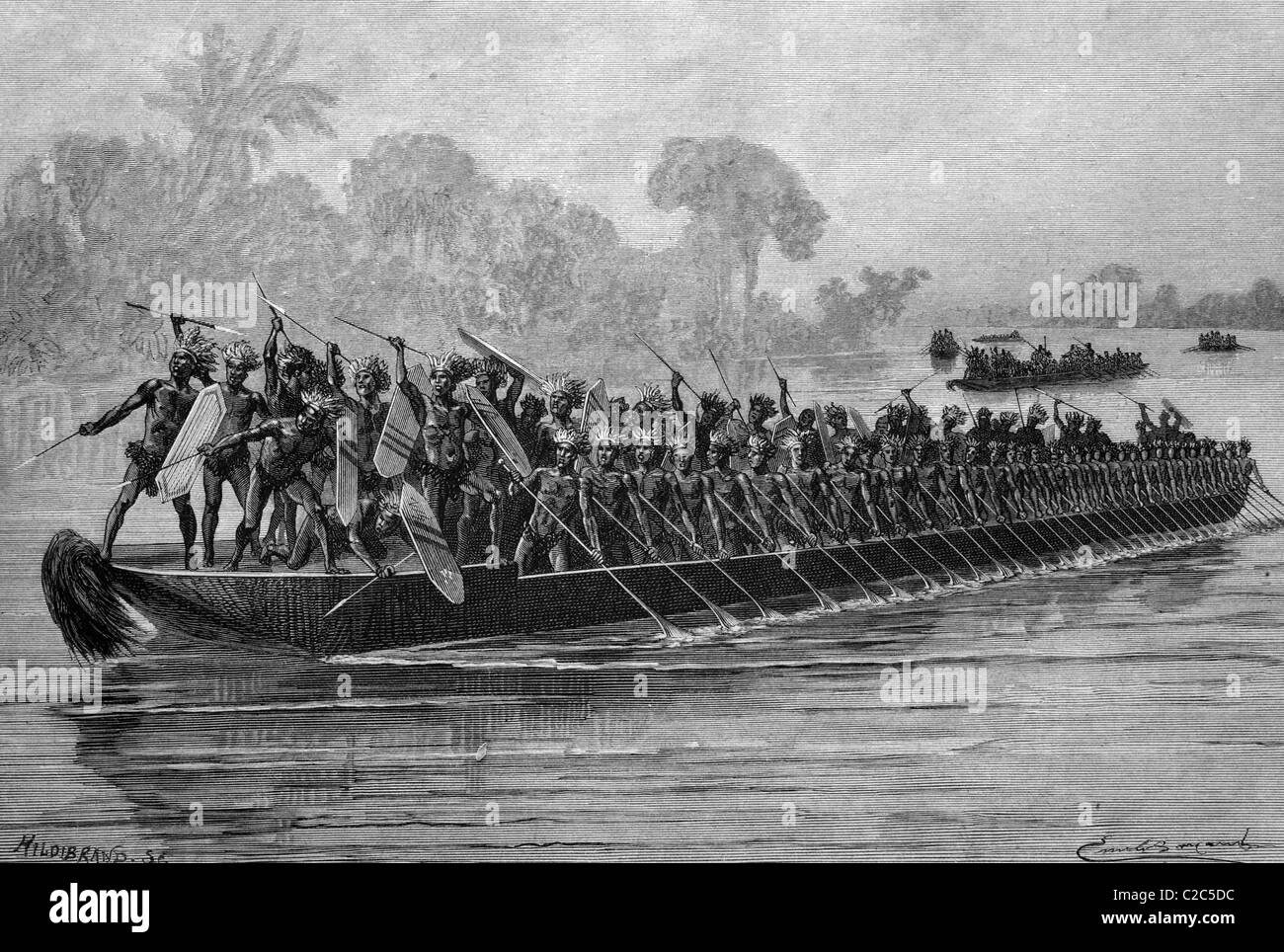That's because the majority of the Malian transcript have not been translated and incorrect they DID in fact have ships and not just canoes. Even used today in the sahel.
It's not from a Malian transcript, like the Timbuktu manuscripts are, though. It's from the writings of a Syrian arab in Egypt about Mansa Musa's hajj to egypt written in arabic, which have indeed been translated into english in
the Corpus of Early Arabic Sources For West African History. And the quote about the atlantic fleet doesn't appear in it, yet legitimate ones about Mansa Musa giving out gold in Cario do appear. The only source websites and wiki post for the Al Umari atlantic fleet quote is by Gaudefroy-Demombynes translated to FRENCH in 1927. And apparently there many different versions of the supposed quote by the same translator. But even it hadn't been translated that statement would make any sense. If it hasn't been translated then why have a bunch of non-arabic speaking non-scholars been citing it IN ENGLISH to lend credence to the idea that Malians sailed the atlantic, or even reach the Americas? How can you cite a translation that doesn't exist?
And it seems like your just coming up your own definition of what a "ship" or "canoe" is based on your own subjective whim.
ship1
/SHip/
noun
a vessel larger than a boat for transporting people or goods by sea.
Traditional sahelian boat technology are not meant for traversing oceans or seas. They are meant for traversing RIVERS and lagoons thus are by definition not ships.
The boats in this video don't even have any sails so they were definitely propelled by paddles, which is what defines a canoe. Although, canoes can have sails as well.
ca·noe
/kəˈno͞o/
noun
- 1.
a narrow, keelless boat with pointed ends, propelled by a paddle or paddles.
Don't see any keel on the boat in the picture you posted either. So, yeah chances are it's(or going to be) a canoe as well.
I never said that west Sahelians only used the stereotypical small fishing canoes that you're probably thinking about. Many Sahelian canoes where large and complex capable of holding many occupants, and sometimes even used as war vessels such as when the the Mandekala drove away portuguese ocean bond slave traders in SHIPS with their CANOES like so.
Still very much a canoe.
Regardless of the circumstances, Sonni Ali learnt his lesson well. Never again was he left at the mercy of someone else's fleet. He built up a river-based navy of over 400 boats, and used them to good effect in his next conquest - the trading city of Jenne (now Djenné. The city was placed under siege, with the fleet blockading the port. Although it took seven years for the siege to work, the city fell to Sonni Ali in 1473. The Songhai Empire now incorporated three of the greatest trading cities on the Niger: Gao, Timbuktu, and Jenne. (All three had once been part of the Mali Empire.
No where in that quote does it mention anything about ships. But river going boats, which most most likely where propelled by paddle, thus making them canoes.
Sunni Ali Ber iirc actually used warships(not the same as Europeans but NOT canoes) to lay siege to Jenne.
*Warcanoes used in rivers. Not warships used in oceans or seas.
These were not canoes. And Sahelian West Africans used ships many times across the Niger river. I don't know what historian has said Mansa Musa's brother story is illegitimate, all I heard is it is unknown if he and his men made it across the Atlantic.
Ship = ocean or sea going vessel
And before you begin I am definitely not saying Africans always lived in the Americas in large numbers like some of these AAs are native Indians crowd or that the Olmecs were Black. It is extremely doubtful that Africans settled the new world in large numbers before the slave trade. However, there are SOME things about Malians/West Africans in the new world that need additional questioning.
Dude, they didn't go to the Americas AT ALL in anyway shape or form. There's nothing to question about what they did there because they weren't there.
And for the umpeenth time, if they had ANY capacity at all to traverse the oceans beyond the immediate coast they would've settled in the Cape Verde islands, which are right across the atlantic from Mali terrority, in some way. It would be impossible to miss it as it's directly on the way to America. Yet they were uninhabited when the portuguese discovered the islands. If they didn't reach a group of islands some ~400 miles away, then how in the HELL are we suppose to believe they would reach a continent over 4000 miles away. Sorry, but you're not going to be able to weasel out of this point. Cape Verde absolutely obliterates this entire argument.
 Come on, now.
Come on, now.
